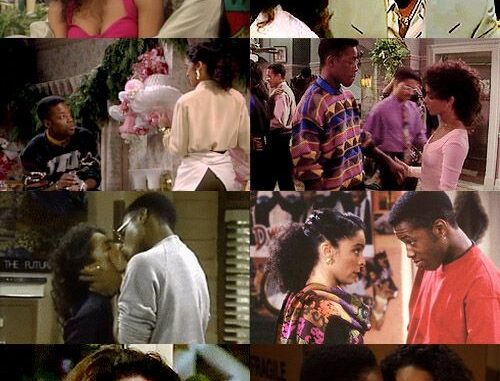
After reuniting with his castmates earlier this year to embark on a 10-city tour of historically Black colleges and universities (HBCUs), A Different World’s Darryl M. Bell — who played the lovable Ronald ‘Ron’ Johnson on the NBC sitcom — tells PEOPLE that the group’s work together is just beginning.
“We have said for a long time that it’s been one of our greatest gifts to be ambassadors for HBCUs for almost 40 years,” Bell tells PEOPLE.
:max_bytes(150000):strip_icc():focal(749x0:751x2):format(webp)/Kadeem-HardisonDarryl-M-Bell-5-06032024-478233e5d4af418e831287a74054eb10.jpg)
“Not a day goes by when all of us who are connected to the cast of A Different World don’t have someone say to us that they went to college because of the show, that they’re a lawyer or an engineer or a doctor because of the show. It’s the most satisfying thing,” he shares.
Thus far, the group — alumni of the beloved fictional HBCU Hillman College — have enjoyed connecting with current HBCU students, as well as alumni and faculty at these esteemed institutions.
“All the response the tour is getting is emblematic of the impact that A Different World has had over the years. It’s among a few shows that has never been off the air since it debuted in 1987. It’s always been around, either on the air in primetime or in syndication or streaming,” he says.
Never miss a story — sign up for PEOPLE’s free daily newsletter to stay up-to-date on the best of what PEOPLE has to offer, from juicy celebrity news to compelling human interest stories.
“New generations continue to find A Different World. We often hear, and it puts the clock on all of us, but that, ‘I watched the show and now my children watch the show. My grandchildren watch the show,’ ” Bell continues.
:max_bytes(150000):strip_icc():focal(749x0:751x2):format(webp)/A-Different-World-cast2-06032024-4f3d87b9f342428e8a0a4e4928b9bca2.jpg)
“There’s that renewal of every generation that looks to find stories that inspire them. And I encourage them to go to college and get an education and encourage them to think about their career and talk about the issues that are important to them.”
In the actors’ time on different campuses throughout this year, Bell says he notices that “college students in 2024 have a lot of similarities to college students in 1987.”
“We’re talking about student protests now. We talked about that in A Different World. If we’re talking about health concerns, we talk about that in A Different World. We’re talking about women’s rights and the protection of women against domestic violence and danger,” he points out.
“These are all things that we talked about and it illustrates that there are so many issues that remain evergreen for young people and people of all ages. That’s why the show continues to resonate and why the tours received such a warm and overwhelming response.”
There’s a lot of pride in tackling major subjects of the day head-on, as well as keeping the show’s signature levity throughout everything they explored.
:max_bytes(150000):strip_icc():focal(594x0:596x2):format(webp)/A-Different-World-cast0-06032024-5cf12456df47471db79adb5dbd9b29c2.jpg)
“I think what I’m most proud of is, irrespective of how difficult some subject matter may have been, A Different World was always funny. We approached everything through the lens of humor. People often say, ‘A serious word has been said in a joke,’ and I think that’s what allows everyone to take down their guard, at least for a moment,” Bell says.
The nuance of that approach wasn’t always easy, but Bell notes, “One of our strengths was being open-minded to inclusivity around everyone, irrespective of race, religion, sexual orientation, all of that.”
He cites the episode “If I Should Die Before I Wake,” where in a public speaking class a professor (Whoopi Goldberg) assigns the class to deliver a speech at their own funerals. In a heart-wrenching speech, one student, Josie (Tisha Campbell), reveals she’s living with AIDS, to the shock of her unsuspecting classmates.
“For us to be able to talk about that … the network was concerned about us talking about it,” he levels.
“Tom Werner, Marcy Carson, Debbie Allen, and Susan Fields were all in the fight with the network. Advertisers were talking about pulling out. This was at a time when you couldn’t show a condom on television,” Bell recalls.
The show was the first network television show to address AIDS, with the episode coming just after Magic Johnson revealed he was living with HIV in 1991.
:max_bytes(150000):strip_icc():focal(586x0:588x2):format(webp)/A-Different-World-cast1-06032024-fbdeac6907cd4923894853cb85e4f740.jpg)
“The insistence to even approach the AIDS conversation mandated that the infected person had to be a woman who was presumed to have contracted AIDS by having heterosexual sex,” he shares. “If you say these things in a conversation today when you’re talking to people about creating content, they would think you were born in the Stone Age.”‘
Bell says the approach the show took to these difficult topics “allowed us to think about something without being adversarial.”
“Because if we can all laugh together, then what else can we do together? So I’m really proud of the way in which, for the most part, A Different World was still a sitcom,” he explains. “It remains one of the funniest shows in the history of television, with credit to those comedy writers whose great work gave us their ability that allowed us to have subsequent conversations around thought-provoking issues.”
